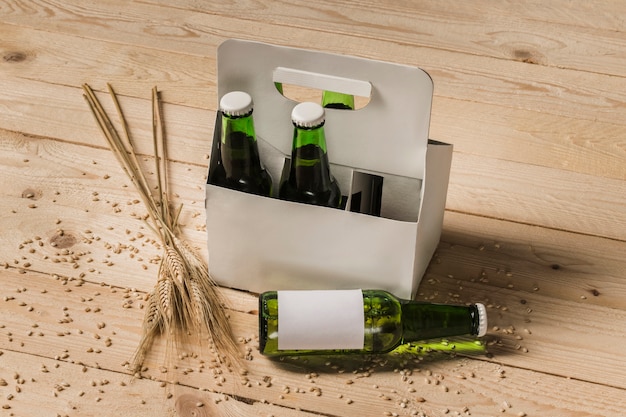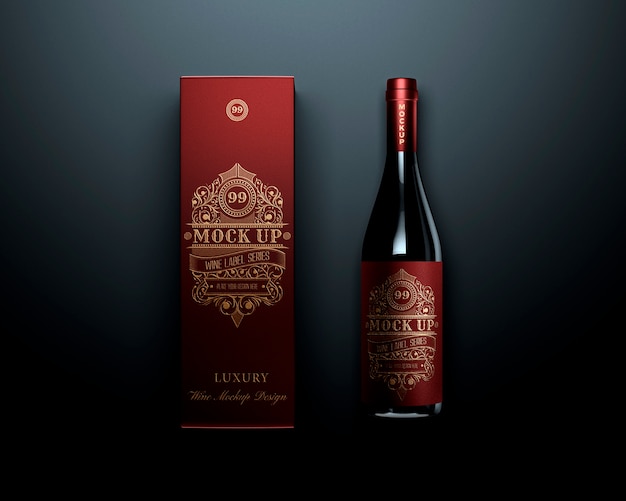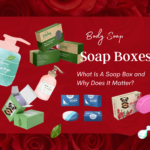Box Wine vs. Bottled Wine : Which One Should You Choose?
Affectionate arguments can be found between wine lovers about whether box wine is better than bottled. Whereas traditionally bottled wine has very long been linked with sophistication and quality, box wine is now gaining rave reviews due to its affordability, ecological suitability, and long shelf life. So, which one will you go for?
Wine in a box and wine in a bottle are comparable in terms of both the quality and the bulk sale price. To add to the dimension of overall subjective taste would be shelf life, real environmental impact of packaging, and so forth. This objective education can trail itself back to the personal references just cited by confirming that a more casual beer drinker could choose one over the other but simply due to taste-satisfaction reasons, or quite the opposite must be expected from the wine connoisseur.
Understanding Box Wine
What is Box Wine?
Bag-in-box or cask wine, as it is also known, is a variety of wine packed inside a plastic bladder surrounded by cardboard. Normally, there is a spout attached to it which helps one pour liquid conveniently and hence aids in serving and storage. This wine is not only a cost-effective option to drink, but has also gained fame because of its sustainability and fresh flavor lasting even months after opening.

Key Benefits of Box Wine
Key Benefits of Box Wine
Unlike bottled wine months later, box wine stays fresh for up to six weeks after you open it. It is a great option for cash-strapped people, tasting like wine from the bottle but at a price that gets you more for much less money. It’s greener waste-wise with minimum packaging. Finally, it is easy to store and transport and to enjoy without worrying about breakage because it is light and durable.
- Longer Freshness
- Cost-Effective
- Eco-Friendly Packaging
- Easy Storage and Portability
- Minimal Oxidation
Longer Freshness
A box wine has become a rage, being an advanced compound of good quality wine and an innovative bag-in-the-box that becomes air-tight when soda and jabs of thin air are pumped with the help of spigots.This extended freshness allows for more flexibility in consumption. This dynamic does afford you the rationale of having a glass without stressing too much to finish the entire bottle rather quickly. An excellent choice for those who just have a drink every now and then.
Cost-Effective
According to the sentence, the total cost of producing a gallon of homebrew beer is higher than box wine costs by approximately 5 USD. Nonetheless, the kit costs less than 1 USD which includes the fermentation bottles.Bulk purchasing also makes it an economical option for gatherings.Not a lot of effort for escape, and their wines are affordable.
Eco-Friendly Packaging
Boxed wine is the more environmentally friendly option, creating less waste in glass and packaging. The materials are generally recyclable, making an environmental impact accordingly. Hence, it is a perfect choice for sustainability-minded consumers. Its production and transport generate less carbon emissions, adding more weight to sustainability.Choosing box wine supports greener consumption habits.
Easy Storage and Portability
Lightweightly packaged, it becomes easier for us to carry and store as compared to glass bottles. Box wine occupies lesser space in the fridge or pantry. Its safer, as it cannot break while carrying. Thus, it becomes perfect for picnics, parties, and outdoor events. It is just about convenience and practicality to make it a preferred option.
Minimal Oxidation
The bag vacuum-sealed inhibits the contact with air, preserving the wine’s quality for quite a long time. Thus, every glass will taste as fresh as the first. Also, with this praise, it doesn’t require any special preservation devices like bottled wine.The reduced oxidation helps maintain the wine’s intended flavor profile. It is a great option for long-term enjoyment.
Potential Drawbacks of Box Wine
- Perceived Inferior Quality – Traditionally, boxed wines have been considered inferior, but many brands now offer premium boxed wines.
- Limited Aging Potential – The box is not made for storing wine for years, as opposed to bottled wines.
- Less Aesthetic Appeal – A cardboard box may not assume the same visual appeal as a designed-to-taste bottle made out of glass.
Understanding Bottled Wine

What is Bottled Wine?
Generally considered to be fine wines intended for aging, bottled wine refers to wine in the classic sense, that is, bottled in glass, mostly with a cork and/or screw cap. The method has been followed for centuries.
Key Benefits of Bottled Wine
- Superior Aging Potential – One popular method of contusion in wine production starts with covering latexes with a metal solution of bismuth tartrate, which eventually causes the proteins to aggregate.
- Higher Perceived Quality – Typically, most wine lovers associate as bottled wine with superior craftsmanship and status.
- Ideal for Special Occasions – Having a glass bottle is one extra celebratory feel.
- Wider Selection – Bottled wine offers enormous spectrum: naturally, it includes the only good things for the dollar as well as a few very, very classy vintage wines.
Potential Drawbacks of Bottled Wine
- Higher Cost – That bottled wines cost more due to purpose-related expenses and bottling materials such as corks and labels.
- Shorter Shelf Life After Opening – When bottled, a bottle of wine can barely survive for only a few days before its character is affected through oxidation.
- Less Sustainable – Packaging materials in glass bottles that need to be thrown away are more hazardous compared to box wine packaging.
Box Wine vs. Bottled Wine: A Detailed Comparison
1. Quality and Taste
In common belief, anything bottled must be superior with respect to quality. This presumes an inferior reputation for today’s boxed wines, where developments in wine processing have greatly improved quality factors. Many reputable wineries are now producing good-quality wines in boxes that deserve consideration on an informal drinking list.
2. Cost-Effectiveness
When you are looking for cheaper alternatives, box wine can give you the maximum volume of wine at a much lower price. On the other hand, bottled wines tend to become more expensive due to higher production costs involved in their process, especially those that are aged or premium brands for that matter.
3. Shelf Life
- Box Wine: Lasts up to six weeks after opening.
- Bottled Wine: Lasts a few days after opening, unless properly preserved.
4. Sustainability and Environmental Impact
Here, box wine contends that it has a smaller carbon footprint. Glass manufacturing and transporting it uses much more energy under various categories than bottled wine, thus rendering the latter less eco-friendly.
5. Convenience and Portability
Positioned as a great companion during every type of activity-from a picnic to a beach excursion to traveling by air-boxed wine as an alternative is less cumbersome, more conveniently stowed and stored, and generally less angst-ridden than bottled wine.
Which One Should You Choose?
Choose Box Wine If:
- If you drink wine on a semi-regular basis, then you would want to opt for some reasonably priced wine.
- Preferably, the packaging is eco-friendly and produces the least amount of waste.
- Wine that stays fresh for a long time after opening would be suitable for you.
- You want a convenient option for social events and casual drinking.
Choose Bottled Wine If:
- You enjoy high-quality, premium wines with aging potential.
- The day is special enough for you to care about a more sophisticated display.
- Fine wine culture is also something you appreciate very much, along with the craft that goes into making those wines.
- You would like to have a larger collection of wines, too, including vintage ones.
Conclusion
It all finally comes down to your essence; preferences, pocket expenditure, and the use to which it will be put when it comes down to box wine or bottled wine. For example, box wine would be the option of choice for a drinker who doesn’t mind really cheap, convenient, and sustainable drinking-it is perfect for social occasions. On the contrary, bottled wine will still come to the rescue of people who cherish tradition, aging, and superior quality wines.
Boxed wine and bottled wine are two different types of wine. They come with their own unique advantages. Knowing how each of them differs from the other should help you settle down with one or the other based on your own lifestyle patterns and habits related to drinking wine. Cheers to making that favorite taste accessible for every frequent experience, be it boxed or bottled!







